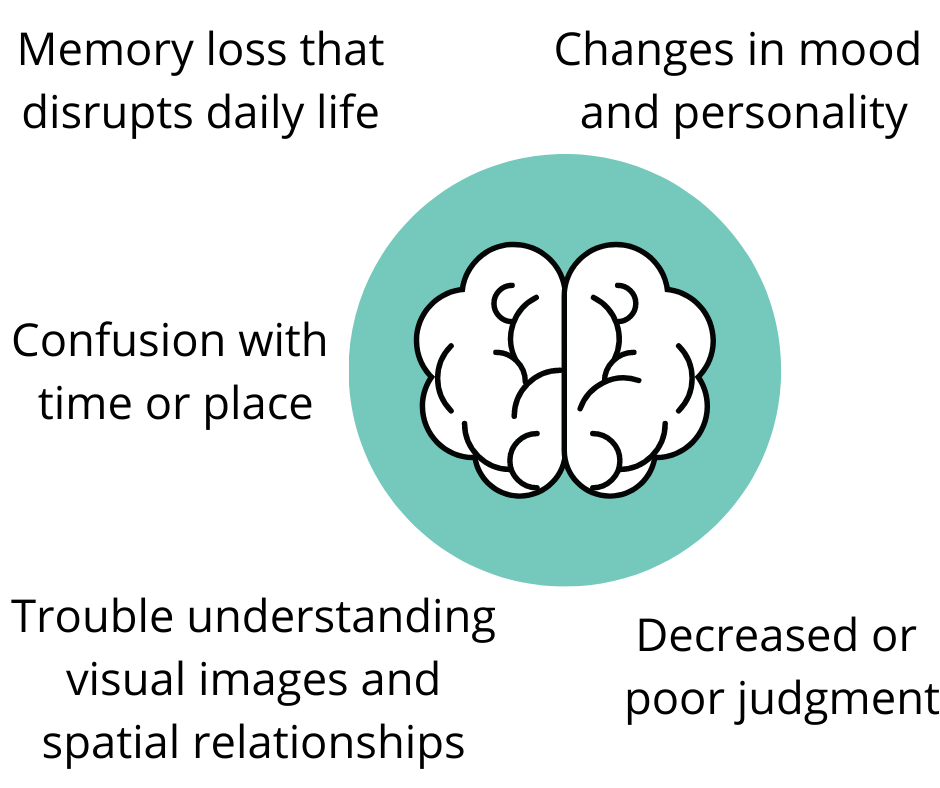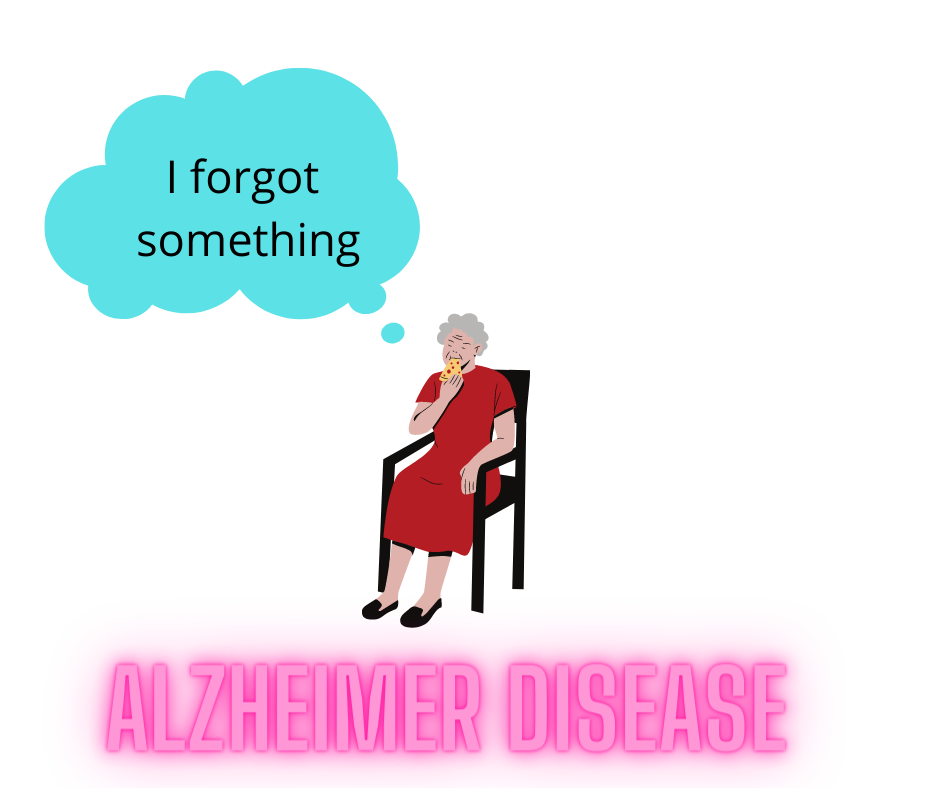Alzheimer‘s disease
Alzheimer’s disease is a neurodegenerative disease that causes disorders of memory, thinking, and behavior. Alzheimer’s disease is not part of the normal aging process. It is caused by the decrease in the amount of the neurotransmitter called acetylcholine, due to the death of cholinergic neurons.
Signs and symptoms
Alzheimer‘s disease starts with a progressive loss of memory and later other symptoms. About 8 – 10 years pass since the beginning of the disease and death. Moreover, symptoms are different that depend on the stage of the disease.
Early stage
Firstly, a patient is forgetting the new events that happen in their everyday life in the early stage of Alzheimer‘s disease. Those cognitive disturbances are starting to get in the way of doing normal activities, so a patient is unable to regulate their finances, drive a vehicle or do chores around the house. Some patients are aware of their disease, while some of them don‘t know that they are ill. Secondary, Change in the environment, such as new places or new situations are making them uncomfortable, as they have a problem with spatial orientation.

Moderate stage
In this stage of the Alzheimer‘s disease patients are unable to live and take care of themselves. Besides the problems with memory that now become more prominent even for earlier memories and knowledge, new cognitive disorders such as aphasia, apraxia, agnosia, and reduced ability for judging and reasoning may occur.
Aphasia – an inability to comprehend or formulate speaking (difficulty speaking)
Apraxia – a loss of the ability to do voluntary movements or tasks including dressing up, maintenance of personal hygiene, washing, eating or solving simple puzzles
Agnosia – a loss of the ability to recognize people, even their children or a spouse
In addition patients in this stage of the disease are not able to do simple calculations, remember the date. As a result, they stop caring about themselves and about people who are close to them, acting apathetic and indifferent, sometimes even aggressive or restless. Because of the impaired spatial orientation, they can‘t even find a way to their homes.
Advanced stage
Patients in the advanced stage of Alzheimer‘s disease lose the ability to reason and think. They can be upset, get up in the evening, disturb their family, wander in random locations, or walk on the same spot repeatedly. During that time they lose normal inhibitions, so they may remove their clothes in front of the people, act aggressively or showing other signs of change in behavior. Personality can drastically change, so people close to them can gain the impression that this is a stranger. In addition, Patients ignore the need for food which leads to loss of weight.
End-stage
In the end-stage of the Alzheimer‘s disease patients become bedbound in the fetal position, unable to control urination and defecation reflexes. They die from the complication associated with immobilization such as septicemia, pneumonia, lung embolism, urinary infections or infections of pressure ulcers, not from the disease on itself.
Pharmacological treatment
To sum up, the pharmacological treatment of Alzheimer‘s disease is based on the use of acetylcholinesterase inhibitors with central effects in monotherapy in the early or moderate stage of the disease. Also, NMDA receptor inhibitors in monotherapy or in combination with acetylcholinesterase inhibitors in moderate to advanced and end-stage of the disease.

